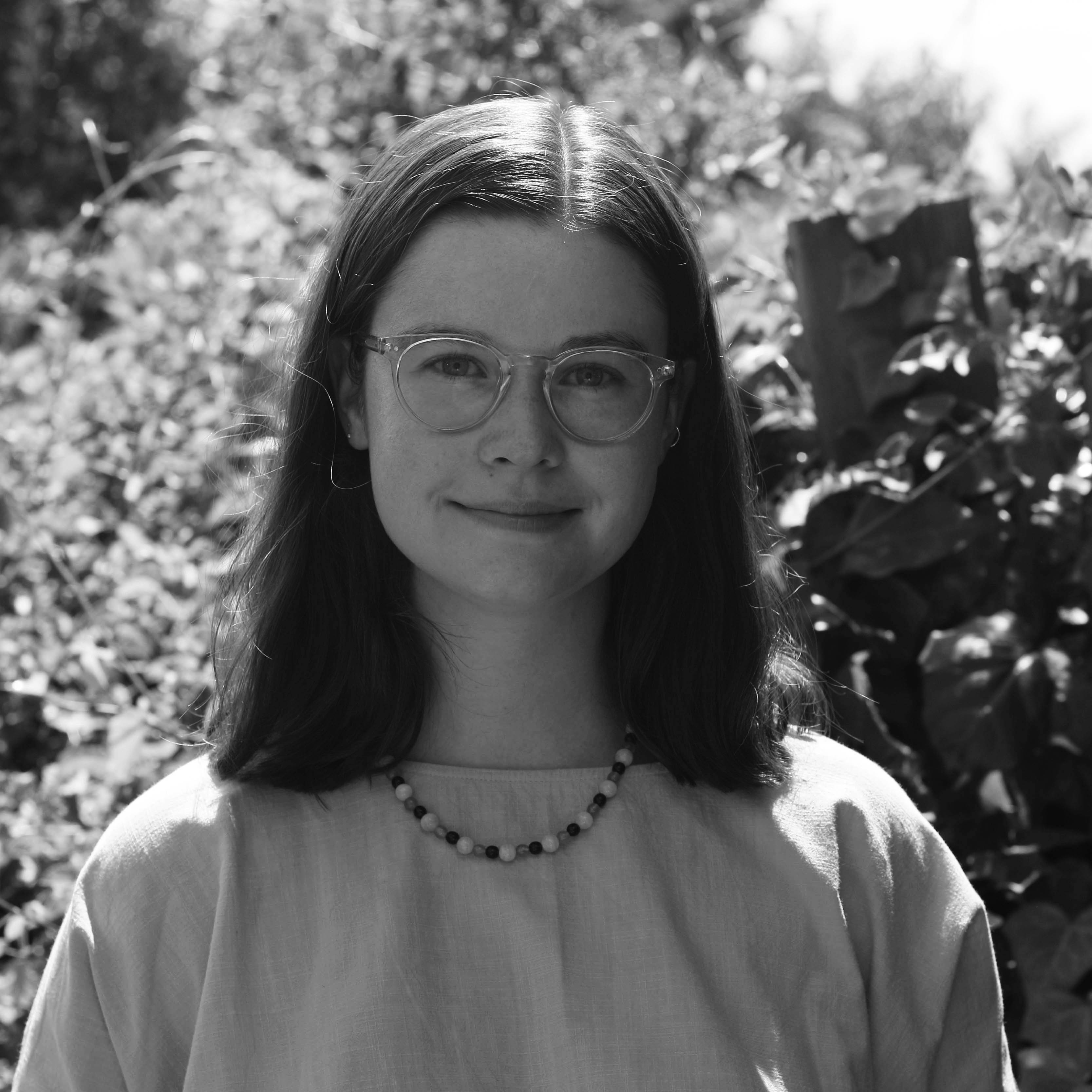Portrait by Sonja Horsman
Rebecca F Kuang was born in Guangzhou, China, and moved with her parents to Dallas, Texas, when she was four. Now 29 and based in Boston, she is completing a PhD at Yale University. As RF Kuang, she is the multi-award-winning and bestselling author of fantasy novels including the Poppy War trilogy and Babel, as well as the 2023 publishing satire Yellowface. For her sixth novel, Katabasis, she returns to fantasy, tracing two Cambridge “magick” students as they travel to hell on a quest to retrieve their professor.
How did you conceive of Katabasis?
I had just started a PhD programme, and after a few months of everybody going on about how a PhD is hell, it seemed a natural conceit. But as I kept writing, I found myself asking: “What kind of suffering would you have had to have gone through for hell to seem like a better alternative?” At its heart, it’s a novel about depression and suicide and chronic illness, all things that my husband and I were dealing with.
Can you tell me more about that?
One of the main characters, Peter Murdoch, has Crohn’s disease. In our first semester of starting our PhDs, my husband was hospitalised for what we found out was a chronic illness that had gone undiagnosed for a long time. He was getting sicker and sicker and thinner and thinner. He’s doing better now, thankfully. But we had a lot of conversations about the mind’s relationship to the body. Katabasis was my way of thinking that through.
If academia is hellish, why are you still involved with it?
There’s a million things wrong with the modern academy. But we have to keep fighting for the impossible ideal of what a university could be, because otherwise we have nothing. I care about my students, I care about being a good teacher, but I think we’re not even close to realising how we can make higher education more accessible and democratic.
How has that become more difficult under Trump’s second presidency?
We’ve seen an attack on institutions of higher education that are totally unprecedented: hiring freezes; bans on student visas; ICE [Immigration and Customs Enforcement] snatching foreign students off the streets. It’s terrifying and is doing unknowable damage to our institutions of research and teaching.
What is your academic field?
I’m in the department of East Asian Languages and Literatures. But I am a frustratingly interdisciplinary person, so I’ve taught in the English department and I also do Asian American literature.
And yet Katabasis is so mathematical. How did you come up with the logic that underpins its magic system?
I’ve always liked logic paradoxes: they’re fun; they’re impossible to resolve. I’m not a philosopher, a logician or a mathematician, but my husband is a philosopher, and his colleagues are logicians and mathematicians. So we hosted a paradox party. I had the faintest structure of how the [novel’s] magic system worked already, and asked them to come bearing a paradox that might make a good magic spell. And people really showed up. They brought handouts, they had presentations. We had a whiteboard in the living room because I think every good party should involve diagrams drawn on the whiteboard. A lot of those became the magic spells in the book.
Logic seems a very technical approach to storytelling. Why did it feel right?
Paradoxes about rational decision-making often take the structure of two very plausible premises and a conclusion that is totally implausible. It’s a metaphor for how we might make a series of choices that we think will be good for us, and then find ourselves in a much worse situation.
Why “magick” with a “k”?
I just like the fussiness of that styling! Styling it with a “k” made it fit better into the classic list of disciplines you could get a Cambridge degree in.
Yellowface sparked a lot of debate. Did anything surprise you?
What has surprised me most is how irrelevant that conversation already seems. The novel was poking fun at a reductive and self-righteous approach to identity politics, the idea that you could tell anybody: “If you’re XYZ race, you’re allowed to write this, but not allowed to write this,” which I always thought was such a lazy, illogical way to think about representation. But, in 2025, I think the environment in which that conversation was even possible has been completely thrown out the window. I’m sure the cultural temperature in the UK is different because you don’t have a dictator. But we do, and diversity, equity and inclusion [programmes] are being prosecuted by the federal government.
If you wrote a novel about publishing today, what would be your angle?
I don’t think I’ll be writing a novel similar to Yellowface ever again. A satire is not fun if the worst jokes possible are just reality.
You’re incredibly prolific. Do you have a strict writing routine?
I don’t think it’s that strict because it always feels like fun, but I’m writing all the time. I’ve closed most of my [social media] accounts and installed blockers – my laptop and phone function like bricks. I can’t even download photos on WhatsApp. Now my days feel twice as long, which is great for writing and reading.
What book have you enjoyed recently?
I’m in the middle of Caroline Fraser’s Murderland, which is heavily stylised nonfiction. It brings together a lot of threads in postwar American culture, one being the epidemic of serial killers in the 1950s and 60s, and another being lead poisoning, mineral mining and the environmental pollution that came as a result. I highly recommend it.
What book do you return to?
I’m currently rereading The Lion, the Witch and the Wardrobe. I’m trying to understand the pacing of children’s stories – how you deliver that much exposition to a reader who is 12, bringing a tone of whimsy, without talking down to them. CS Lewis was very good at that. It’s an art that I would like to crack.
Katabasis is your sixth novel. Do you already have ideas for the next ones?
I think I have up to my 12th. Beyond that, I have to live some more life. The seventh is called Taipei Story: a coming-of-age novel about a college freshman who is doing a language study abroad programme in Taipei. She is grappling with loss and grief and family histories, all while being very bad at Chinese. The stylistic influences are Patricia Lockwood, Sally Rooney and Elif Batuman.
Katabasis is published by Harper Voyager (£22). Order a copy from The Observer Shop for £19.80. Delivery charges may apply
Newsletters
Choose the newsletters you want to receive
View more
For information about how The Observer protects your data, read our Privacy Policy

